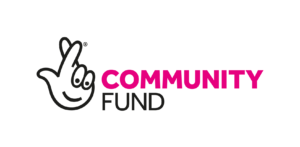Mental health therapy treatments encompass a range of interventions and approaches that aim to improve an individual’s mental well-being, alleviate psychological distress, and promote healthier coping mechanisms. Here are some commonly used therapies:
- Cognitive Behavioral Therapy (CBT): CBT focuses on identifying and changing negative thought patterns and behaviors that contribute to mental health issues. It helps individuals develop practical strategies to manage their symptoms and improve their overall functioning.
- Psychotherapy: This broad term refers to various talk therapy approaches, such as psychodynamic therapy, humanistic therapy, and interpersonal therapy. Psychotherapy involves discussing and exploring feelings, thoughts, and behaviors in a supportive and non-judgmental environment.
- Dialectical Behavior Therapy (DBT): DBT is an evidence-based therapy originally developed to treat borderline personality disorder. It combines elements of CBT with mindfulness techniques to help individuals regulate their emotions, improve interpersonal skills, and cope with distressing situations.
- Acceptance and Commitment Therapy (ACT): ACT focuses on accepting difficult thoughts and feelings while taking action toward personal values and goals. It aims to increase psychological flexibility and help individuals live a meaningful life, even in the presence of mental health challenges.
- Mindfulness-Based Therapies: These therapies, such as Mindfulness-Based Stress Reduction (MBSR) and Mindfulness-Based Cognitive Therapy (MBCT), incorporate mindfulness practices to cultivate present-moment awareness and reduce stress. They are effective for various mental health conditions.
- Eye Movement Desensitization and Reprocessing (EMDR): EMDR is primarily used to address trauma-related disorders. It involves guided eye movements or other bilateral stimulation techniques while recalling distressing memories, facilitating the reprocessing of traumatic experiences.
- Family Therapy: Family therapy involves working with individuals and their families to improve communication, address relationship issues, and resolve conflicts. It can be helpful for conditions that impact the family unit, such as eating disorders or substance abuse.
- Group Therapy: Group therapy involves a therapist leading a session with a small group of individuals who share similar challenges or experiences. It provides a supportive environment for individuals to share their feelings, learn from others, and develop coping skills.
- Pharmacotherapy: Medication can be an essential component of mental health treatment, particularly for conditions such as depression, anxiety disorders, and bipolar disorder. Psychiatrists prescribe medication to address biochemical imbalances and manage symptoms.
It’s important to note that the choice of therapy depends on the individual’s specific needs, diagnosis, and personal preferences. Mental health professionals assess each person’s situation and recommend the most suitable treatment approach.


